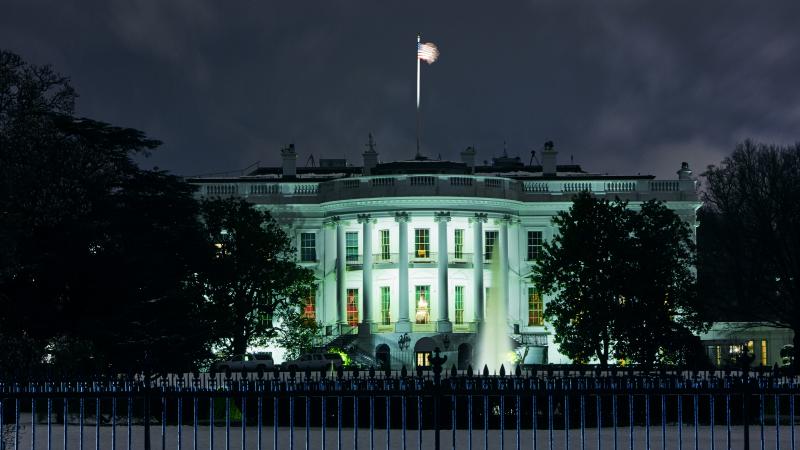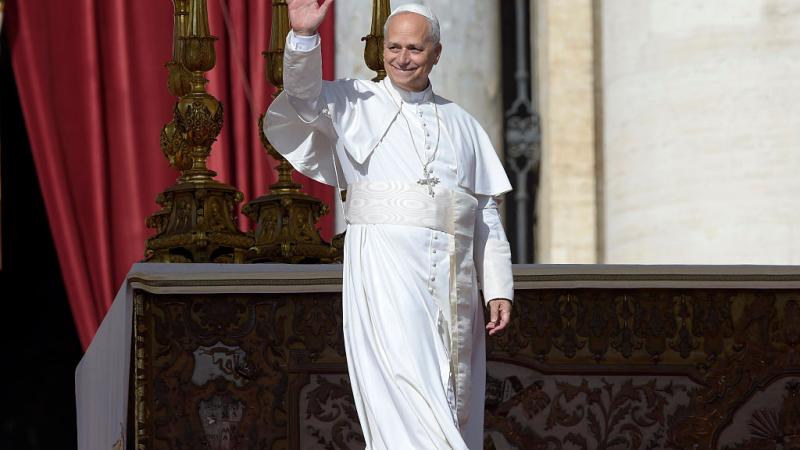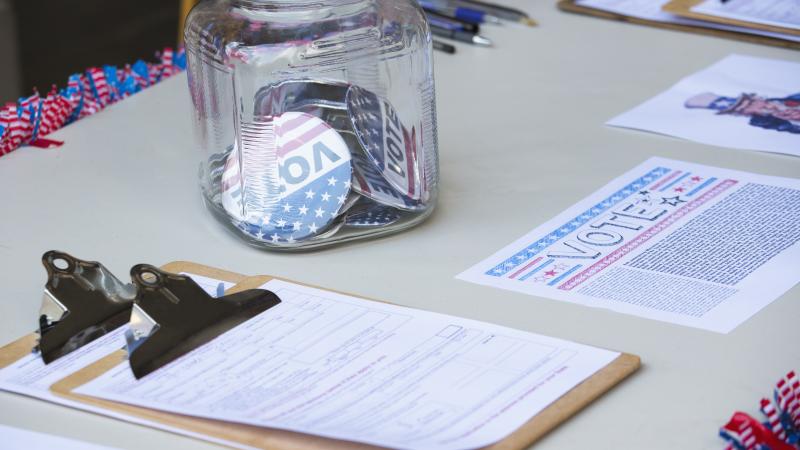Serenity now! Hindu rituals in class cost Chicago schools, filmmaker's nonprofit $2.6M settlement
Christian student got settlement year and a half before Muslim-led class settlement. David Lynch Foundation removed schools tab from U.S. website on transcendental meditation in 2021 but continues targeting schools in other countries.
The late filmmaker David Lynch's partnership with Chicago Public Schools to teach children transcendental meditation is bound to send The Windy City's taxpayers into frenzied cries of "Serenity now!" when they see the legal bill.
CPS and the David Lynch Foundation for Consciousness-Based Education and World Peace are paying $2.6 million to settle a class-action lawsuit by students who argued the "Quiet Time" program, run by the foundation for four years at eight schools, violated their First Amendment rights by subjecting them to Hindu rituals pitched as "non-religious" exercises.
U.S. District Judge Matthew Kennelly approved the settlement Wednesday, a year after certifying the class and a year and a half after the defendants paid Mariyah Green, a Christian student, $150,000 to settle her own claims. It covers the period of fall 2015 through spring 2019 and students who turned 18 on or after Jan. 13, 2021.
Kennelly also approved the plaintiffs' motion for attorney fees and costs – $860,035 to lawyers and $100,000 to class representative Kaya Hudgins – and directed the parties to send him a proposed order by May 12. A spokesperson for the plaintiffs told Just the News CPS and the foundation are equally splitting the settlement amount.
The defendants did not admit liability in a Jan. 17 motion for preliminary approval of the settlement, and the foundation, which like the Church of Scientology heavily relies on celebrity testimonials, continues to tout transcendental meditation in schools, just not in America.
The schools tab on its U.S. website, which said transcendental meditation "does not involve any religion, philosophy, or change in lifestyle," disappeared between Jan. 17 and Jan. 20, 2021. "This approach has been adopted by hundreds of public, private and charter schools worldwide—with strong support from students, parents and educators," it said.
Schools remain an explicit foundation target in other countries including the U.K. and Canada, whose pages still include the "change in lifestyle" sentence. The U.S. page now simply says transcendental meditation is "not a religion, philosophy or lifestyle."
CPS told Just the News it "partners with external organizations to implement programs that support mental health and social-emotional development" such as Quiet Time, which it called "a meditation-based social-emotional learning tool" developed by the foundation "to support communities affected by violence and trauma."
Though it removed the program in 2020, "Quiet Time did not violate any student’s constitutional rights," CPS said. It reached a settlement in November and the board approved $1.3 million for its portion in December.
The foundation did not respond to queries from Just the News.
The University of Chicago was initially a defendant by virtue of its Urban Labs accepting a research proposal from the foundation, pitching it to CPS and giving "treatment" and "control" groups a "health questionnaire," but Judge Kennelly dropped it.
The settlement appears to be a costly lesson for the nation's fourth-largest school district and a cautionary tale for others thinking of teaching children religious practices in the name of health, social emotional learning or diversity, equity and inclusion.
Schools have been on notice for more than 40 years that courts may deem transcendental meditation in schools a religious practice at odds with the Establishment Clause, yet they kept subjecting students to practices painted as pedagogical rather than religious.
Nearly two years before Green's settlement, California dropped Aztec prayers allegedly associated with human sacrifices from its ethnic studies "model" curriculum, widely used by schools, to settle litigation by students who felt compelled to participate or "face the social implications of declining to participate."
The lawsuit claimed the California constitution is more strict than the U.S. Constitution on separation of church and state.
'Effectively demonic invocation'
The Chicago Tribune threw a harsh spotlight on the program in 2019, when Bogan Computer Technical High School student Jade Thomas shared details of the ceremonies at a Chicago Board of Education meeting before a "rapt audience."
She and others at Bogan were "led into a room with shades drawn and door windows papered over, lit only with candles and scented by incense … handed flowers and told to pay attention to instructors," the Tribune paraphrased.
Thomas said instructors "chanted in a foreign language" and "threw rice, seasonings and oranges in a pan in front of a picture of a man," whom she would later learn was the founder of transcendental meditation, Guru Dev. The instructors had them "place the flowers in the pan with everything else" and ended the song without explanation, she said.
CPS class representative Hudgins said she "was a Muslim" when she transferred to Bogan, also Green's school, for its basketball program. Her lawyers said last year she is "no longer practicing any religion."
Hudgins said she participated in Quiet Time because teachers said refusing could hurt her grades and threaten her spot on the team.
The settlement class includes 773 students who were either "required to participate" in the rituals, including mantras, presentation of gifts and offers to deities to "channel their power" through participants, or "deprived daily of a half-hour of academic instruction and required to maintain silence" while classmates participated, their law firm Mauck & Baker said.
"Approximately 200" have actually made claims, the district emphasized to Just the News.
Parents and students see the meditation as "effectively demonic invocation" and the Hindu American Foundation calls it "wholly and unequivocally Hindu," the law firm said. The settlement should dissuade CPS of "allowing wolves to prey on the sheep they are obligated to protect."
"I was just a teenager when I was pressured into a program I didn’t understand and wasn’t allowed to question," Hudgins said after the settlement. Her declaration said she and "many" classmates signed a nondisclosure agreement and a foundation staffer told them "not to tell our parents if our parents were 'religious.'"
The Facts Inside Our Reporter's Notebook
Documents
Videos
Links
- class-action lawsuit by students
- Mariyah Green, a Christian student, $150,000 to settle
- Jan. 17 motion for preliminary approval
- heavily relies on celebrity testimonials
- Jan. 17
- Jan. 20, 2021
- U.K.
- Canada
- nation's fourth-largest school district
- more than 40 years that courts may deem transcendental meditation
- California dropped Aztec prayers
- Chicago Tribune
- Hindu American Foundation calls















